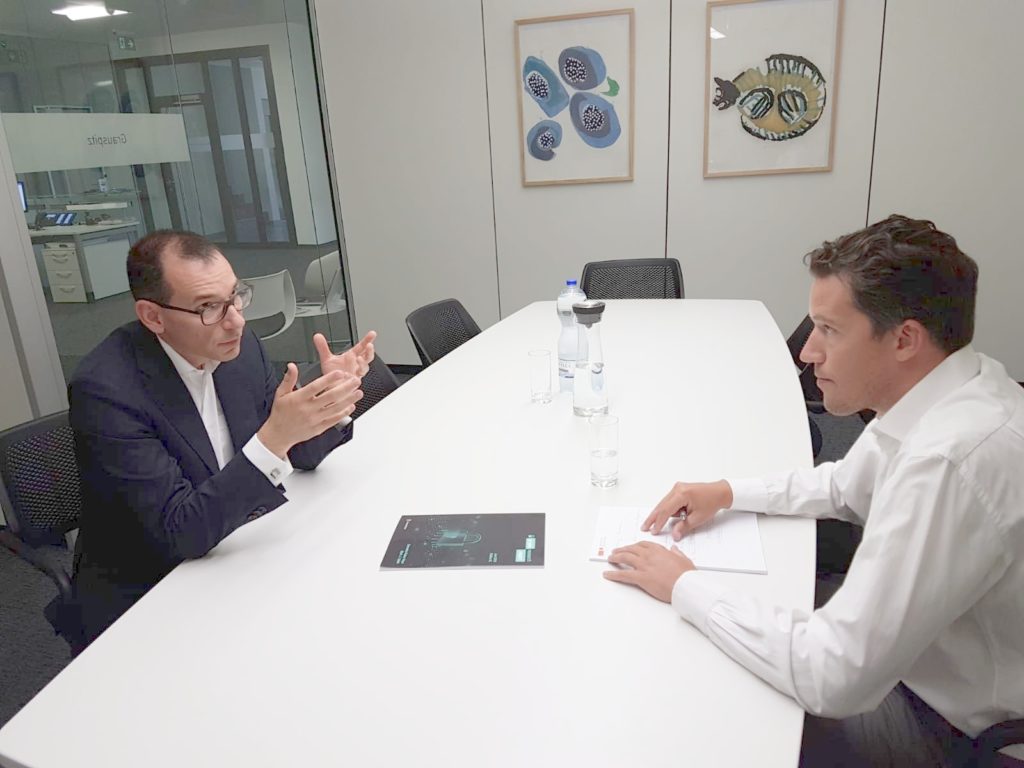“Payment tokens can only be issued to companies with an FMA license, e. g., an electronic money license or a bank license. However, there are certain exceptions that do not require a permit. With securities tokens, it depends on whether the company uses the token to create a financial instrument for investors or to raise debt or equity for the company itself. In the latter case, the enterprise does not require a license from the FMA but should have the so-called prospectus approved.”
Patrick Bont, FMA
Patrick Bont is a member of the executive board of the Financial Market Authority Liechtenstein, and he is the head of the banking division and the head of the FinTech team at the FMA. For the past three and half years, Mr. Bont has served as lecturer at the University of Liechtenstein’s Compliance-Officer Certificate Program. He completed his Master’s in Law at the University of St. Gallen. Mr. Bont has written and spoken on the subject of cryptocurrencies, and he is an active member of the Liechtenstein FinTech community.

Mark Valek: An essential aspect of cryptocurrencies and the tokenized economy is the process of so-called initial coin offering (ICOs), i. e. the first issue of crypto tokens. What are the main categories of tokens from a regulatory perspective?
Patrick Bont: There are numerous approaches to categorize tokens. Discussions are under way among regulators and supervisors as to which approach makes the most sense. The FMA currently assumes three categories: utility token, payment token and securities token. Roughly speaking, one can say that utility tokens entitle to purchase a product or service, payment tokens are to serve as means of payment and securities tokens are quasi-financial instruments. In practice, however, the limits are not quite so easy to draw and there are numerous hybrid forms. From a financial market perspective, payment tokens and securities tokens are particularly relevant.
Mark Valek: Who carries out the token classification of the ICO in each individual case? Is the classification focused on the legal or technical perspective?
Patrick Bont: Generally, the token issuer is responsible for clarifying whether its ICO or token falls under financial market law. It is advisable to consult a specialized lawyer. The FMA’s FinTech team can of course also be contacted in case of uncertainties. First and foremost, the legal classification is important to us. However, the technical functionalities of a token can give hints to the classification process.
Mark Valek: Let us assume that a company intends to have an ICO in this country. What does the process look like depending on the token class that is to be issued?
Patrick Bont: First, the company must decide what it wants to achieve with the ICO. This means that it must assess the ICO economically but also legally and technically. One also speaks of “ICO economics”. If the decision has been made to issue a “security token” or a “payment token”, the company should submit the corresponding applications to the FMA, preferably with the support of a specialist.
Mark Valek: Does the issuing company require a regulatory license, and if so, which?
Patrick Bont: This in turn depends on the token or the business model of the company and to whom the tokens are offered. “Payment tokens” can only be issued to companies with an FMA license, e. g., an electronic money license or a bank license. However, there are certain exceptions that do not require a permit. With “securities tokens”, it depends on whether the company uses the token to create a financial instrument for investors or to raise debt or equity for the company itself. In the latter case, the enterprise does not require a license from the FMA but should have the so-called prospectus approved.
Mark Valek: How much time should be scheduled for an ICO?
Patrick Bont: According to our experience, the planning, preparation, and implementation of an ICO takes between 12 and 18 months, depending on the complexity and the required permits.
Mark Valek: What effects will the planned Blockchain Act have on the ICO landscape in Liechtenstein and how will this national law affect international business?
Patrick Bont: It is important to understand that all ICOs currently covered by the financial market law will continue to do so in the future. As an EEA country, Liechtenstein takes over EU financial market regulation and implements and enforces it. The Blockchain Act therefore affects all ICOs that are not covered by the financial market law, i. e. above all utility tokens. The law has the advantage that these ICOs are also subject to certain rules and thus the buyers of the tokens enjoy better protection. However, ICO are only one aspect of the new law.
Mark Valek: How many ICOs have already been reviewed by the FMA or how many are currently under review?
Patrick Bont: Over the past three years, the FMA has received and processed more than 100 inquiries in connection with ICOs. However, only a fraction of them were implemented.
Mark Valek: How does the FMA Liechtenstein prepare itself in terms of resources for the new complexity and increasing requests from companies, particularly with regard to the verification and monitoring of these tokens?
Patrick Bont: In June of this year, the FMA set up its own FinTech team. The Regulatory Laboratory/Financial Innovations team deals with questions from companies and entrepreneurs in the field of financial innovation. These are not only start-ups but also banks or other financial intermediaries who want to implement projects. In addition, we at the FMA attach great importance to ensuring that our employees receive further training in these topics so that we can discuss with market participants on an equal footing.
Mark Valek: Where can a company find out more about any requirements?
Patrick Bont: I recommend visiting the FMA website regularly. Under the heading “FinTech in Liechtenstein” you will find information on the topic. The FinTech pages are regularly updated and supplemented.




